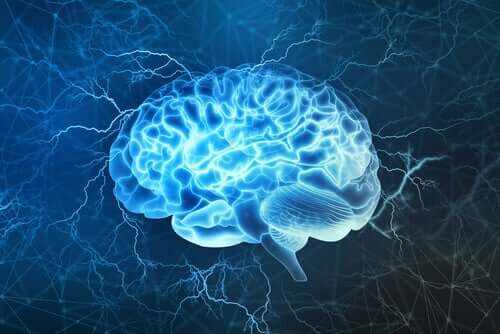Psychological Benefits of Physical Activity

Most people join the gym or start doing physical activity to improve their physical appearance. This is a valid reason to motivate yourself to adopt a healthier lifestyle habit. However, keep in mind that the benefits go beyond aesthetics. What if we told you that exercising is also good for your mind?
Surely, you’ve heard that physical activity can help release emotional tension or stress. Keep this idea in mind so that you can delve deeper into the psychological benefits of exercise.
Physical activity is healthy for the mind

In essence, exercising provides several benefits for mental health. Here are the main ones:
- Improves memory
- Stimulates creativity
- Helps release tension and induces relaxation
- Helps prevent premature aging
- Increases the production of red blood cells, which helps oxygen flow to the brain
In turn, Denisse Oller explains that “Physical activity helps alleviate the symptoms of post-traumatic stress disorder through relaxation exercises such as yoga, but also through aerobic exercises, such as running and swimming. These exercises help get a deep and continuous night’s sleep”.
1. Physical activity makes you happier
Your body releases endorphins whenever you exercise. These make you feel happy. For this reason, exercising is highly recommended for people with depression.
Likewise, if you have problems with stress or anxiety, exercise could help release tension. This fatigues both your body and your mind. As a result of exercising, you’ll be able to relax and sleep better.
Find out How to Change Your Negative Thinking
2. It Improves self-esteem
Another psychological benefit of physical activity is it allows you to see yourself as a healthier and happier person. This is a great boost for your self-esteem. Accordingly, you’ll value yourself more. Exercise! It’ll boost your self-esteem and feel better. You’ll also project the best version of yourself to others.
3. Physical activity improves social relationships

Physical activity will help you have a better perception of yourself and you’ll feel happier. You’ll value yourself higher and will have more confidence. This, in turn, will help you connect more deeply and easily with others and so your social relationships will improve.
You’ll feel like participating in group activities and playing group sports. Starting a conversation with someone you don’t know will be easier for you too. All this will happen just because you’ll feel well and sociable. This will indeed make you feel great and be more positive.
4. It prevents mental decline
If you’re worried about degenerative diseases like Alzheimer’s, then you should know that physical exercise can help you prevent them. For this reason, you should exercise regularly between 25 and 45 years of age. Your future self will definitely thank you.
5. It helps control addictions
Are you addicted to some sort of drug, alcohol, tobacco, or anything else? One of the psychological benefits of physical activity is it can help you control it. Sometimes it can even help you quit it completely.
How? Addiction is closely related to dopamine and you also release this hormone during exercise. Thus, it’s highly effective in getting rid of addictions.
6. Physical activity improves memory

The production of cells in the hippocampus will increase if you exercise. These cells are responsible for both memory and learning. As a result, your memory will improve. Thus, you’ll be able to learn and remember things much better. In short, a sedentary lifestyle isn’t good for your memory at all.
Check out The Five Best Memory Exercises
7. You’ll be much more productive
You might think that physical activity can make you feel more tired. You might also believe that, as a result, you’ll perform worse at work or in your other activities.
But there’s nothing farther from the truth. Exercising will energize you because it’ll help keep you active throughout the day. This energy prevents the “low” times. It also improves your concentration at work.
Do you lead a sedentary life? Do you exercise regularly? These are just a few of the benefits that physical activity can provide.
Do you feel bad? Are you productive? Think about whether exercise can help improve all of this. Sometimes something as simple as getting a bit of exercise can solve many of your problems.
All cited sources were thoroughly reviewed by our team to ensure their quality, reliability, currency, and validity. The bibliography of this article was considered reliable and of academic or scientific accuracy.
- Cordero, A., Masiá, M. D., & Galve, E. (2014). Ejercicio físico y salud. Revista Espanola de Cardiologia. https://doi.org/10.1016/j.recesp.2014.04.007
- Gruber, W. (1992). Fisiologia del ejercicio. Archiv F. https://doi.org/10.1007/BF01929730
- Jiménez, M. G., Martínez, P., Miró, E., & Sánchez, A. I. (2008). Bienestar psicológico y hábitos saludables: ¿Están asociados a la prática de ejercicio físico? International Journal of Clinical and Health Psychology. https://doi.org/10.1109/ICSICT.2010.5667623
- Aparicio Garca-Molina, V. A., Carbonell-Baeza, A., & Delgado-Fernández, M. (2010). Beneficios de la actividad física en personas mayores. Revista Internacional de Medicina y Ciencias de La Actividad Fisica y Del Deporte. https://doi.org/ISSN: 1577-0354
This text is provided for informational purposes only and does not replace consultation with a professional. If in doubt, consult your specialist.








